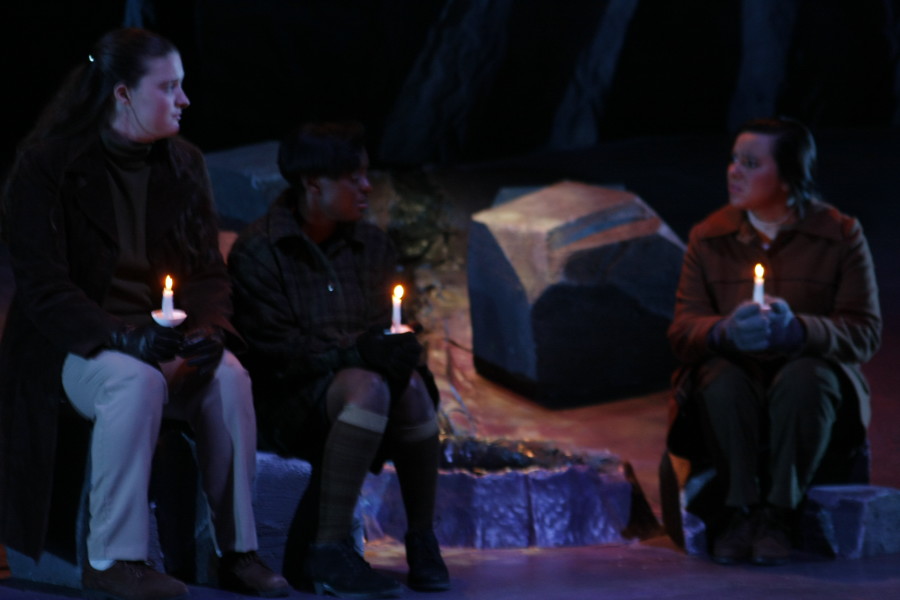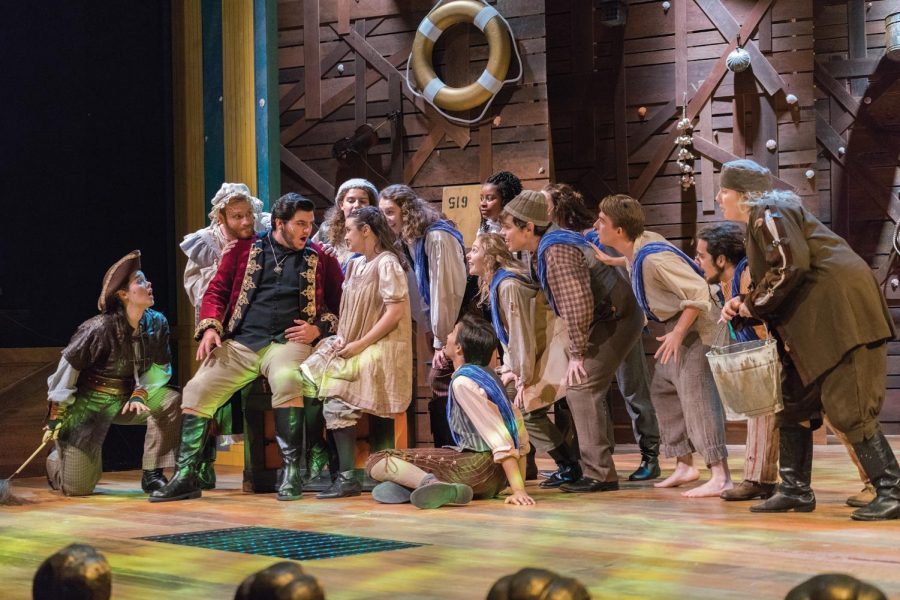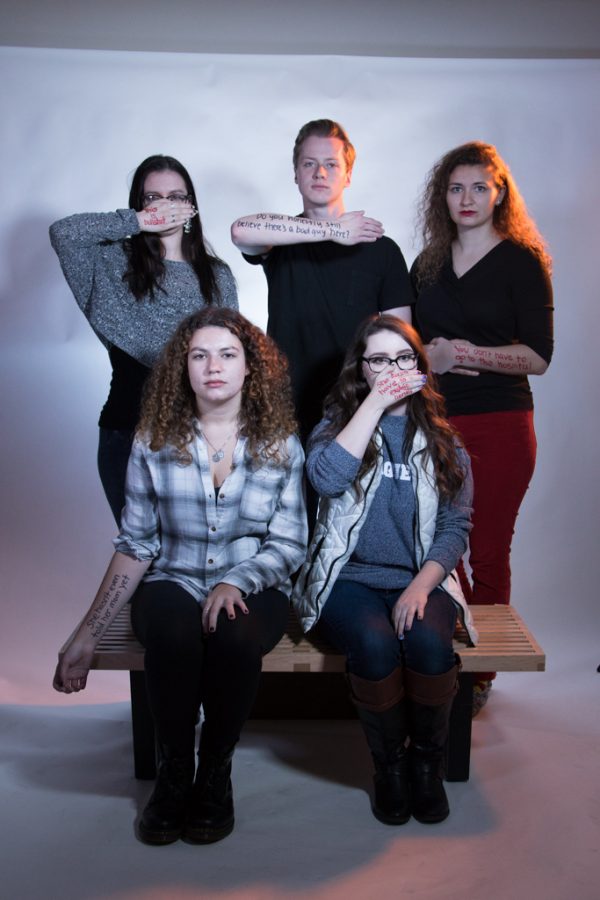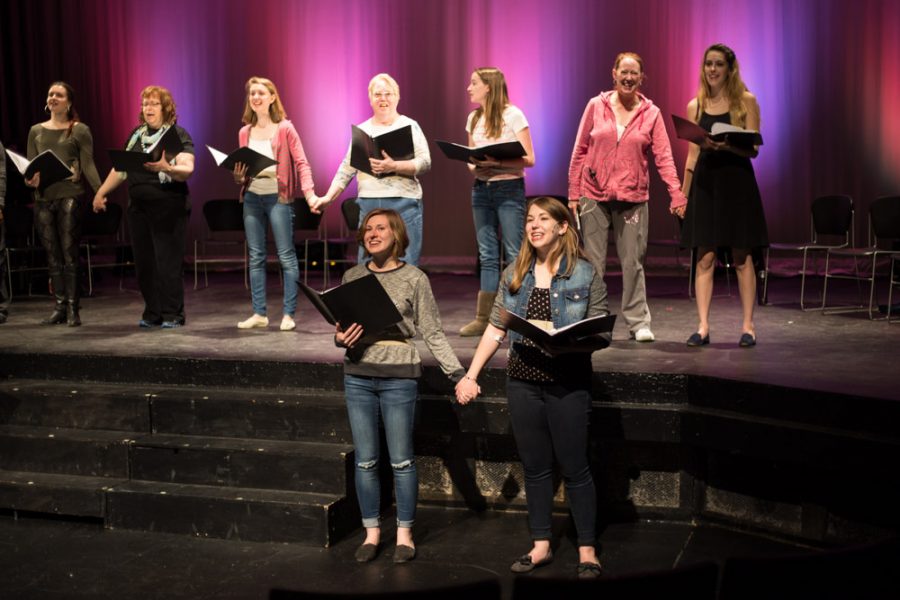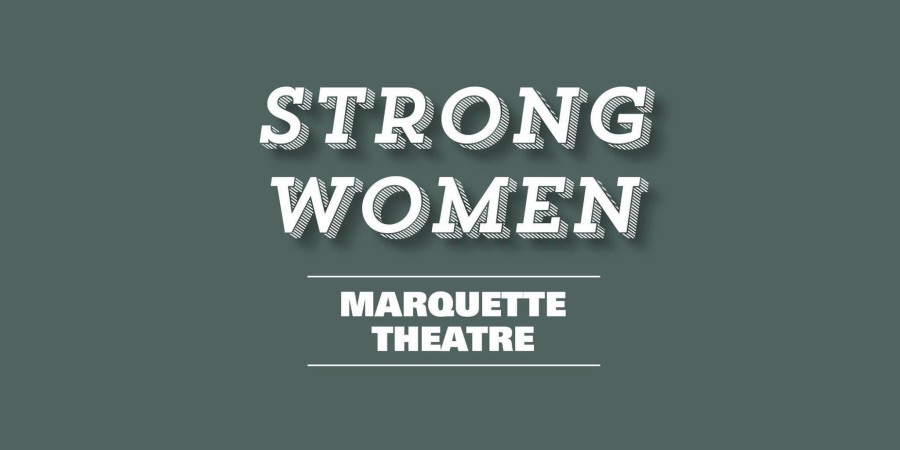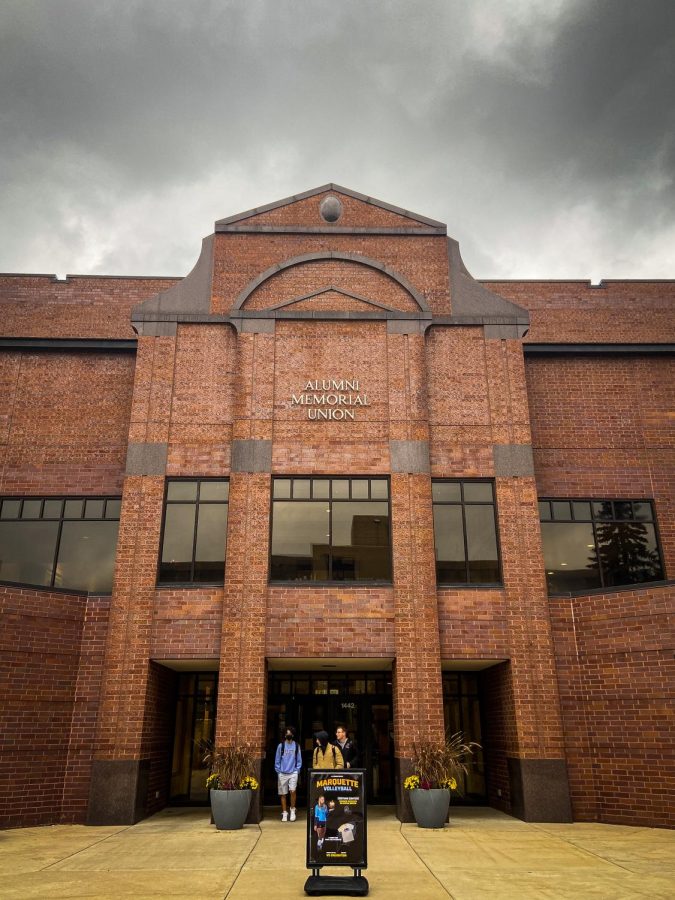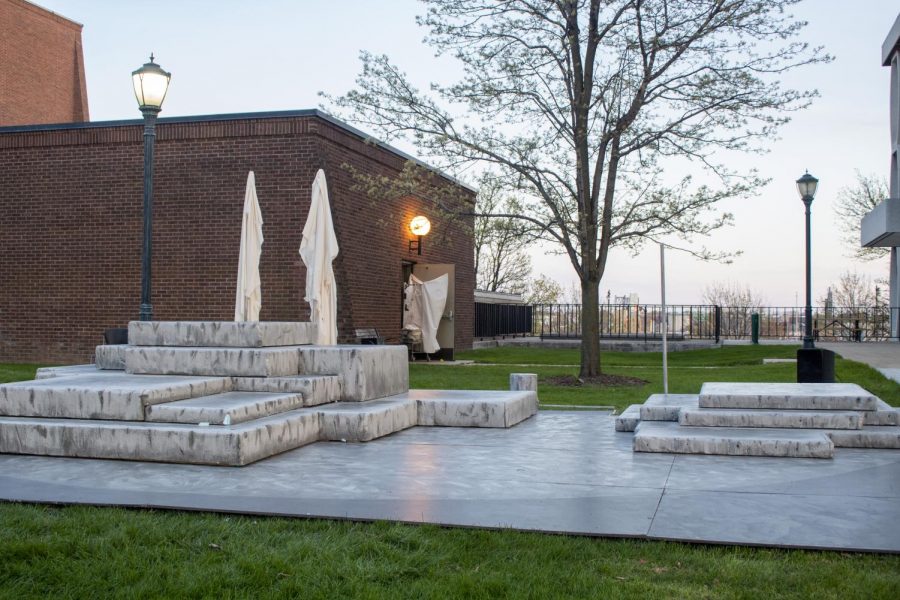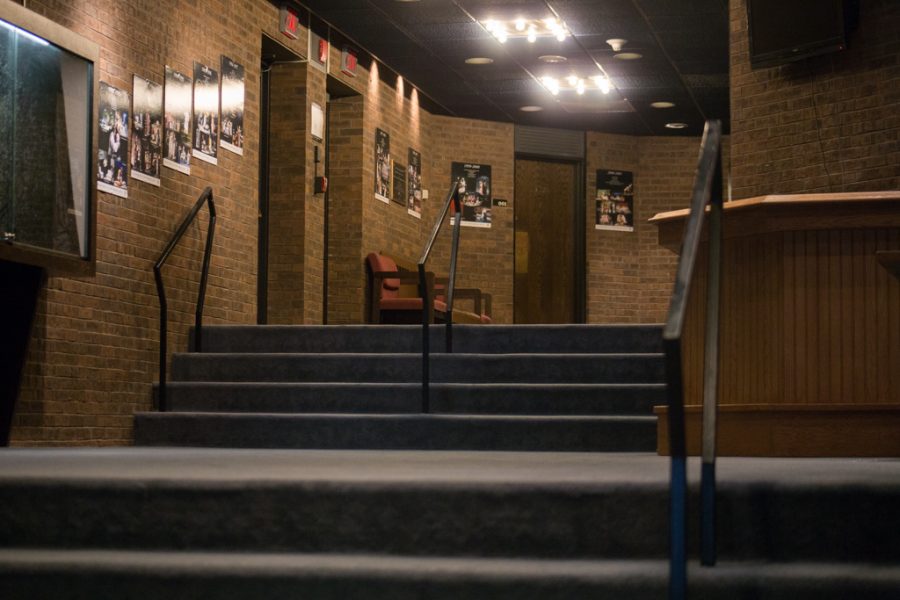
“Trouble just doesn’t come to Lockerbie, Scotland.”
This line from the latest Marquette theatre production describes what most Lockerbie residents believed, until it became the site of the first terrorist attack against U.S. citizens. “The Women of Lockerbie,” opening today and running through Nov. 18, is inspired by this first attack, the Pan Am 103 airplane bombing.
On December 21, 1988, a Pan American airplane flying from London to JFK Airport exploded over Lockerbie, killing all 259 passengers and 11 people on the ground and decimating the countryside town. The explosion, caused by a bomb placed under a passenger seat, was activated by a Libyan terrorist targeting U.S. citizens. Most college students have little to no knowledge of the tragedy, but the show’s director, Debra Krajec, has many memories of the incident.
“I remember it really well because it was right before Christmas,” Krajec said. “I remember watching the TV reports at dinnertime. At the time, they didn’t know what had happened – mechanical error or whatever – and it turned out it was a bomb, a terrorist bomb.”
The crash also had an impact on playwright Deborah Brevoort, who was watching a documentary about the event when she heard about how the women of Lockerbie responded.
“They put together what we generically call a laundry project,” Krajec explained. “They decided that they wanted to take all the pieces of clothing – and there were 11,000 pieces of clothing that were found – wash them, pack them neatly and give them back to the families, so that they could have something.”
Brevoort was fascinated by the effort and soon after wrote “The Women of Lockerbie.” In the play, she tells the story of a couple from New Jersey who travel to Lockerbie seven years after the Pan Am explosion looking for any remnants of their son. There, they encounter the women living in Lockerbie who survived the disaster and discover how both parties still feel the grief surrounding the tragic event. Since the event encompasses such strong emotion, Brevoort chose to write the play in the form of a Greek tragedy, which is characterized by devastating events and their effect on women.
“(In Greek tragedies) the women are the ones who have to pick up the pieces and keep going,” Krajec said. “That’s what (Brevoort wanted to convey) with this idea of women wanting to help others and make something good come out of something bad.”
The extreme emotions are vital to the message of the play but can be difficult for actors to convey.
“There are several scenes of really deep emotion, and that is hard (for the actors),” Krajec said. “They all have something in their lives, for good or ill, that’s sad that they can connect to, but something like this? No. They’ve never had a child. They’ve not been married. They’ve never had anything this awful happen to them, but there are certain things that they can hook onto in their own lives and relate to.”
Amy Burzak, a junior in the College of Communication, knows firsthand what kind of impression such a role can have on an actor. Her character, Madeline Livingston, travels to Lockerbie with her husband hoping she can get a sense of closure after grieving over her son’s death for seven years. Throughout the play, she goes through intense emotional episodes in which she screams, cries, calls to her deceased son and demands to know why he was taken from her. Burzak is currently taking a course on the psychology of death and dying, which she says helps her understand her character’s emotions, but she admits her role is not easy.
“The best part about playing this role is the challenge,” Burzak said. “As an actor, I’m always looking to stretch myself, and this (role) has definitely pushed me places I haven’t gone before. I would also say it’s the worst part because the heavy emotional states I bring myself into for the sake of the role can be hard to shake.”
In order to get a better understanding of their characters and the event itself, the cast researched and discussed the disaster with Krajec. College of Communication sophomore Ava Thomann said this preparation was a major help in portraying her character, an elderly Scottish woman named Hattie.
“We read a lot of testimonials from victims, family members and others who were involved,” Thomann said. “We watched several news stories from when it first happened and also spent a lot of time talking about the psychological effects this event would have on our characters. A lot of dialect coaching was also necessary for my role in order to (master) the Scottish accent, which was rather difficult. The dialect coach, Maureen Kilmurry, did an excellent job teaching not only the dialect, but how to stay true to the meaning behind each and every one of the lines.”
College of Communication junior Katie Callahan can also attest to the amount of work the actors contribute in and out of rehearsal, calling her role as the Scottish woman Olive “emotionally draining.” However, she said the story, no matter how destructive, is one that needs to be told.
“This is a story that is still very important to our lives today,” Callahan said. “Although many (current) Marquette students were not alive at the time of this disaster, there are several parallels (between) this act of terrorism and more recent ones we are more familiar with.”
The play was chosen for this theatre season last December but will no doubt remind audiences of the recent shootings at the Sikh temple in Oak Creek and at the Azana Spa in Brookfield. Krajec said she wishes there wasn’t such a stunning parallel but believes the 90-minute play can help anyone who is grieving – whether over these shootings or a personal loss – find comfort and peace.
“Going through these dark valleys of grief is unfortunately part of the human existence,” Krajec said. “We all go through it one way or another, (but) you don’t have to be alone. If you are sucked into (the play) – and I hope people will be – it takes you on an emotional journey.”

